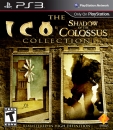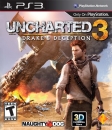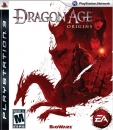shio said:
Actually Mass Effect is a terrible example. Mass Effect is an extremely linear RPG with very few choices, nowhere near the quality of the recent The Witcher or Dragon Age. |
I'd just like to intercede here and say that a lot of people, who claim to be mega WRPG fans, will turn around and say that Dragon Age is nothing more than a flashy version of Baulders Gate with better graphics and less options (fewer classes and skills). Note, I'm not saying this is my opinion, just what I'm hearing from a lot of WRPG fans.
As for the person you quoted, yet again there's another misconception of JRPGs lumped into an absolute. There's multiple JRPGs that allow you to customize your characters attributes, from Phantasy Star to Dragon Quest. Why in Dragon Quest III alone, way back in 1989, you could even change their mood, which would alter their stats while leveling.
If you haven't figured it out, Dragon Quest has a very WRPG styled engine. Which did tons of things you keep praising WRPGs for doing...anywhere from 15-20 years ago. All of you who keep lumping 'all JRPGs' into these absolute statements need to do some research.


























































